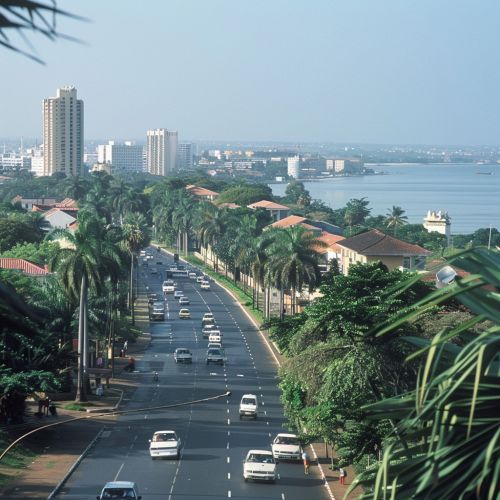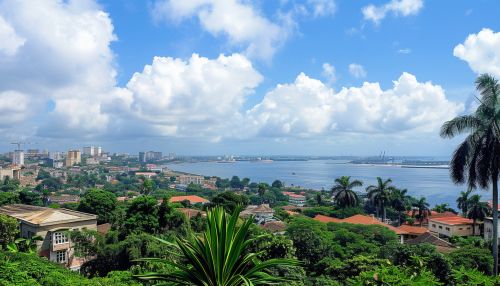Gabon
Geography
Gabon is located on the west coast of Central Africa. Located on the equator, Gabon is bordered by Equatorial Guinea to the northwest, Cameroon to the north, the Republic of the Congo on the east and south, and the Gulf of Guinea to the west. It has an area of nearly 270,000 square kilometers (100,000 sq mi) and its population is estimated at 2 million people. Its capital and largest city is Libreville.


History
The earliest inhabitants of the area were Pygmy peoples. They were largely replaced and absorbed by Bantu tribes as they migrated. In the 15th century, the first Europeans arrived. The nation's present name originates from "Gabão", Portuguese for "cloak", which is roughly the shape that Portuguese explorers gave to the estuary of the Komo River by Libreville. French explorer Pierre Savorgnan de Brazza led his first mission to the Gabon-Congo area in 1875. He founded the town of Franceville, and was later colonial governor. Several Bantu groups lived in the area that is now Gabon when France officially occupied it in 1885.
Politics
Gabon is a republic with a presidential form of government under the 1961 constitution (revised in 1975, rewritten in 1991, and revised in 2003). The President of Gabon is elected for a seven-year term by universal suffrage and is also the chief of the defence forces. The president can appoint and dismiss the prime minister, the cabinet, and judges of the independent Supreme Court. The president also has other strong powers, such as the ability to dissolve the National Assembly, declare a state of siege, delay legislation, and conduct referenda.
Economy
Gabon's economy is dominated by oil. Oil revenues comprise roughly 46% of the government's budget, 43% of gross domestic product (GDP), and 81% of exports. Oil production is currently declining rapidly from its high point of 370,000 barrels per day in 1997. Some estimates suggest that Gabonese oil will be expended by 2025. In spite of the decreasing oil revenues, planning is only now beginning for an after-oil scenario. Gabonese officials have been working on a plan, Horizon 2025, which they hope will make Gabon a more developed country by that year.
Culture
Gabonese culture is a blend of traditional, French and modern influences. The country is known for its music and dance, particularly the traditional dance styles such as the Ngouabi. Other forms of Gabonese music include the folk styles of the various ethnic groups, the most well-known of which are the Fang, Punu, and Teke. Gabonese literature, though not as well-known as that of some other African countries, has produced a number of renowned poets and novelists.
